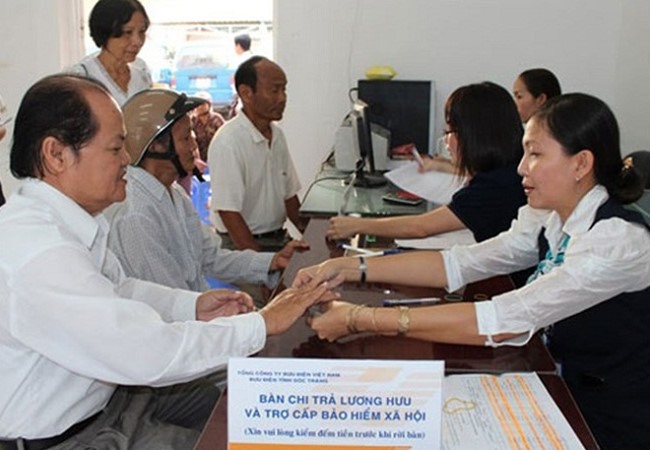 Politics & Law
Politics & Law

The Ministry of Labour, Invalids, and Social Affairs (MoLISA) has submitted a proposal to the government on amending several labour code provisions, one of which would raise the retirement age, receiving widespread attention of the public.
 |
| Retired people receive their pension. Increasing the retirement age has been under consideration by the Government since 2008. – Photo VietTimes.net |
HÀ NỘI – The Ministry of Labour, Invalids, and Social Affairs (MoLISA) has submitted a proposal to the government on amending several labour code provisions, one of which would raise the retirement age, receiving widespread attention of the public.
The ministry has suggested that the age for retirement for men and women be raised to 62 years and 58 years, respectively, or an alternative scenario would be to keep the current state as per existing wherein the retirement age is 60 years for men and 55 for women.
If this proposal is accepted, the ministry has recommended that a roadmap be followed and that every year, three months gets added to the earlier retirement age, which it says will “smoothen the transition” and reduce disruption of labour and workforce arrangements to a minimal level.
Increasing the retirement age has been under consideration by the Government since 2008.
Bùi Sỹ Lợi, Deputy Chairman of the Committee for Social Issues, under the National Assembly, said that if the roadmap to raise the retirement age is implemented starting from 2020, then in eight years, by 2028, the retirement age for men and women will be 62 years, and 58 years, respectively.
The ministry has also proposed changes in another issue that closely affects businesses and labourers - raising overtime. Two options have been put forth: the first is to proceed with current regulations – not more than 30 hours per month, and 200 hours per year, and not more than 300 hours in special cases. The new proposal is to limit the total workhours to under 12 hours a day (8 working hours, plus less than four overtime hours), and restrict employers from asking employees to work overtime five days consecutively.
Nguyễn Bá Hoan, MoLISA’s chief of ministry office, said the amendments made to Labour Code 2012 will reflect and codify international labour practices and standards as set by ILO into domestic law, in order to fulfil requirements for international integration. – VNS




